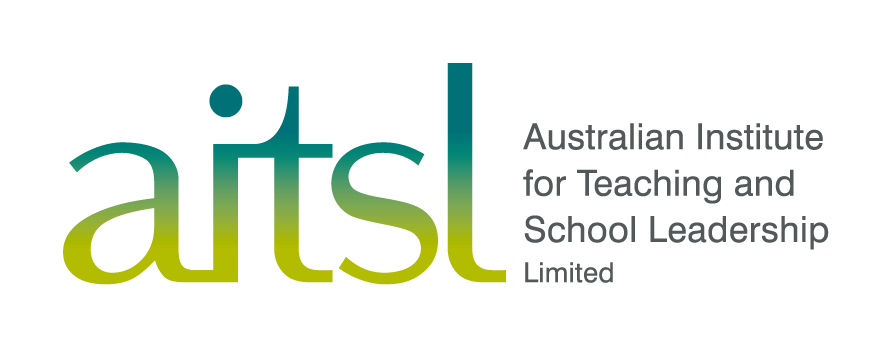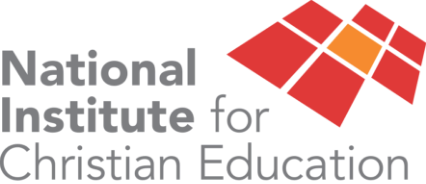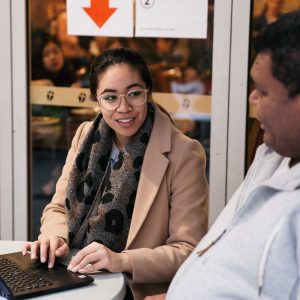It is essential for all early childhood teachers to have deep knowledge and understanding of the significance of the role of play in children’s learning and development. This unit provides a comprehensive analysis of the theories of play and play-based pedagogies and of relevant research that is indicative of the importance of play in early childhood education under the umbrella of contemporary curriculum.
This unit outlines the Australian Curriculum and NESA Syllabus content for this area of study. Students will engage with the latest research in the area and have an opportunity to develop their own teaching plans and programmes. The unit content includes specific teaching pedagogical practices as well as curriculum specialisation
Students advance their skills in critically examining literacy and gain tools to asses thier class and progress the efficacy and skills of children K-2. The subject focuses on current pedagogies developed through the process of research and evidence-based outcomes which will equip future educators.
This unit outlines the Australian Curriculum and NESA Syllabus content for this area of study. Students will engage with the latest research in the area and have an opportunity to develop their own teaching plans and programmes. The unit content includes specific teaching pedagogical practices as well as curriculum specialisation
This unit outlines the Australian Curriculum and NESA Syllabus content for this area of study. Students will engage with the latest research in the area and have an opportunity to develop their own teaching plans and programmes. The unit content includes specific teaching pedagogical practices as well as curriculum specialisation
This subject is delivered for City Harvest Church students.
This subject explores the foundational values of integrity, stewardship, and justice, providing students with practical tools to navigate ethical challenges in business. While exploring the role of ethics in organisational dynamics and corporate governance, students will delve into ethical philosophies and examine their direct and indirect impacts on the economy, business practices, and individual responses. The course builds an understanding of global business ethics and their application in real-world contexts through a study of diverse cultural perspectives.
Students will learn how ethical decision-making rooted in Christian principles can transform the workplace and inspire a positive impact in the broader community. Through case studies, discussions, and real-world applications, students will develop their own personal ethos with a focus on integrating ethical principles into business practices informed by a Christian worldview and they will learn how to align their professional actions with a faith-driven purpose, ensuring responsible leadership and sustainable success.
This subject will commence in 2025
This subject will commence in 2025
This subject will commence in 2025
This subject will commence in 2025
This subject will commence in 2025
This subject explores the developmental journey and processes that an individual goes through over a lifespan, from conception to death. It introduces various theories and milestones associated with each life stage and includes multicultural and critical perspectives on development. It will enable students to help individuals understand normal developmental processes, whether in health, education, minstry or people helping fields.
Preach by bridging the gap between ancient texts and exploring effective ways to communicate biblically sound truths to a modern world. If you want to learn how to develop life-changing preaching, and bring revelation to postmodern people that struggle with the Christian story, then look no further.
It is essential for all early childhood teachers to have deep knowledge and understanding of the significance of the role of play in children’s learning and development. This unit provides a comprehensive analysis of the theories of play and play-based pedagogies and of relevant research that is indicative of the importance of play in early childhood education under the umbrella of contemporary curriculum.
The books of Proverbs and Psalms are two of the most well-known and loved texts within the Old Testament/Hebrew Bible. In addition to Proverbs, the books of Job and Ecclesiastes comprise what is known as Wisdom Literature, a genre of writings from the ancient Near East comprised of sayings and teachings by sages and the wise about the breadth of the human experience. Psalms is an anthology of Hebrew hymns to be used either in collective liturgical settings or for personal expression. Throughout this course, we will engage with tools of exegesis to reflect on how to read the Wisdom and Psalms text, as well as the Song of Songs, which is neither part of Psalms or Wisdom Literature, yet is Hebrew poetry and considers wisdom in relationships.
In today's fast-paced financial landscape, informed decision-making is key to personal and organisational success. Financial Decision Making equips students with vital skills, focusing on strategic and everyday financial choices. With practical case studies from Australia and beyond, the unit covers the time value of money, risk evaluation, and cash flow analysis. Students will learn how to apply financial planning strategies to navigate complex challenges effectively.
Through this subject, students are equipped with critical insights into managing financial integrity risks, particularly within not-for-profits and churches. Through a blend of theoretical understanding and practical application, students will design a financial integrity system, crucial for protecting the assets and reputations of organisations within their communities.
Recognising the need for informed decisions in today's data-driven marketplace, this course introduces students to essential mathematical and statistical methods needed in business, with a focus on ethical data usage and effective decision-making. You will learn to critically analyse, summarise, and present data, understanding its significant role in not only for-profit environments but also in NGOs and NFP organisations.
Grasping Australian corporate law is crucial for effective company management and operation. This subject offers an examination of business structures, the impact of incorporation, and the roles of directors and officers within both for-profit and not-for-profit sectors. Students will gaining critical insight into corporate governance, the Corporations Act 2001 (Cth), the responsibilities of company directors, and the operations of ASIC.
Gaining proficiency in practical financial decision-making is crucial for both personal and business success. Through this subject, students will uncover how the global financial system functions, assess risks in capital markets, and learn strategies for financing significant projects and valuing businesses. The course also addresses raising capital and managing debt with a focus on ethical considerations.
For not-for-profits and churches, understanding governance, law, and taxation is critical for effective management. This unit equips students with a sound understanding of the specific regulatory and taxation frameworks applicable to NFPs and religious organisations in Australia. Students will learn to apply this knowledge to real-world scenarios, critically engaging with contemporary policy debates surrounding these sectors.
Navigating the complexities of taxation law is important for informed personal and business decision-making. This subject prepares students to critically analyse, resolve issues, and perform taxation calculations. Through research and practical application of tax law, students will develop dynamic skills to adapt to legal changes, enhancing their ability to manage future taxation challenges effectively.
This is the final primary Professional Experience placement, whereby students take full responsibility for a classroom in building on their skills, knowledge and attitudes and working more closely related to those of beginning teaching.Students will undergo the planning, implementation, assesment of students and reporting, including embedding individualised programs for specific school students to support inclusion and diversity. Students will need to consider gaps and silences evident in discourses about learners and learning and critically engage with ethical practices for inclusivity.






